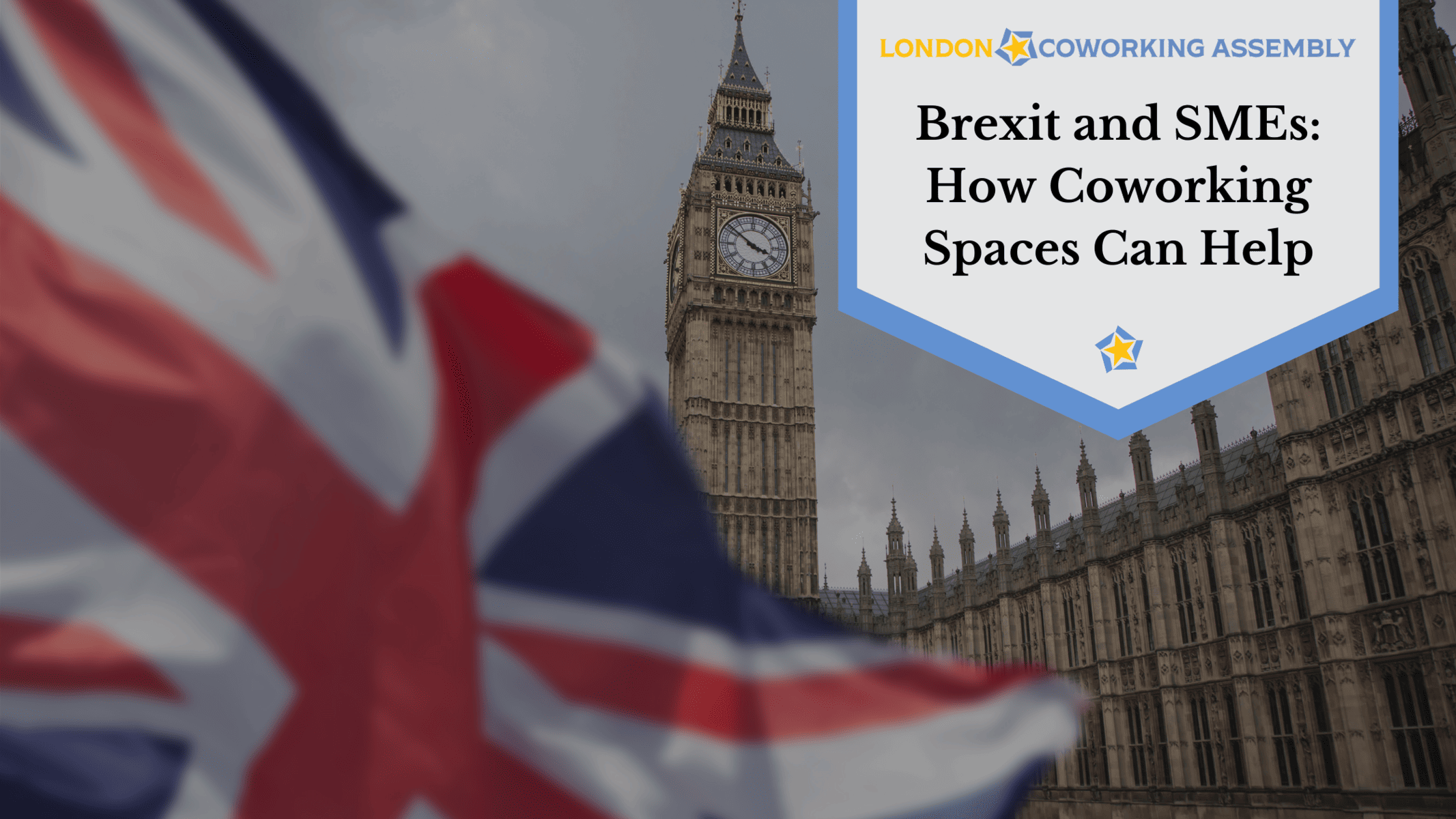Even before Brexit, small to medium enterprises (SMEs) have struggled with opening bank accounts and being considered for credit or loans. Since early January 2021 many things have changed for businesses in the UK due to the finalisation of Brexit and brought on new struggles. Many have been impacted negatively especially in regard to employment, finance, growth, and trade. Not only that, but the global pandemic has also forced some SMEs to close their doors.
Although the impact cannot be seen instantly, many SMEs are threatened with going under purely because of the new regulations. Here are some ways in which businesses have already been affected by Brexit — and how a coworking space can soften the blow.
How Brexit affects SMEs
Since the start of 2020 many SMEs have been dealing with some difficult times. They experienced serious cash flow problems and had to retrench quite a few of their employees. Now, in 2021, the UK has officially withdrawn from the EU and this has wreaked some havoc amongst SME owners. With the new regulations in place, many businesses have had to reconsider how they do their finances, who they employ and where they establish their location.
A study done by London Business Hub found that the negative effects of Brexit far outweigh the positive effects for SMEs. Trade and employment has especially been impacted by Brexit. According to the study there have been great differences in trading behaviours depending on the size of the SME. In the past three years small and medium businesses were more likely to trade with the EU, therefore they are more vulnerable to Brexit. The staff of SMEs are, as a consequence, also impacted and the study showed that the retention rate increased.
Sebastian Dullien, senior policy fellow at the European Council on Foreign Relations and professor of international economics at HTW Berlin, in an interview with The Guardian said that Brexit would “create huge uncertainties in financial markets which would translate into more restrictive financing conditions and less availability of funds for small and medium sized enterprises”.
Swati Dhingra, assistant professor at the department of economics at the London School of Economics, in the same interview said that “[o]ne of the four basic freedoms of the EU is free movement of capital, which enables firms to invest in other European companies and to raise money in EU member countries. But the option of raising capital abroad is typically beyond the capacity of most SMEs, who instead rely on banks and government bodies for external finance”.
As a business with a registered address in the UK, trading and doing business with the EU can become quite difficult due to the numerous regulations that have been since the UK’s break away. According to Euro News since the UK left the EU there has been a plunge in numbers of UK exports and imports with the EU, 41% for imports and 29% for exports.
If you have a registered address in the EU, then Brexit will not affect you as much. This is where a coworking space in the EU can benefit your SME. One example of such a coworking space is De Kamer situated in the Netherlands.
How can De Kamer help SMEs in the UK
De Kamer, a network of coworking spaces in the Netherlands, is able to offer SMEs and independent workers a home from which to work in the EU, from a registered business address to a private rental. This approach allows you to register your business in the EU which could keep your business safe from Brexit.
As a SME, foreign entrepreneur or during a move you need an address at a minimum — postal address and/or registration address to register your company with the Chamber of Commerce.
De Kamer also offers a postal address and registration address in the Netherlands. You can register your company at one of DeKamer’s various coworking locations in the Netherlands. De Kamer handles all of the paperwork for you, so that you don’t have to worry about it.
This address can be used to apply for financial obligations in the EU and help with ensuring that your employees in the EU have working spaces. This means that as an SME who employed persons from the EU, you will not be as heavily affected by the effects that Brexit has on the retention percentage.
Contact De Kamer to find out how they can be of assistance to you to ensure that your business has a registered EU address.

